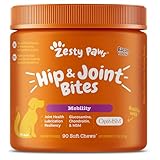As devoted guardians, we endeavor to provide our furry companions with a balanced and nutritious diet, reflecting our dietary choices. Nevertheless, uncertainty often arises regarding snacks, particularly those labeled as fruit snacks. Can dogs eat fruit snacks? Are these treats harmless for our canine friends, or do they potentially harbor hidden dangers?
High sugar content in fruit snacks can make your dog sick.
Many fruit snacks designed for humans contain added sugars, artificial flavors, and preservatives that can harm dogs. Feeding your dog high sugar content can lead to obesity, dental issues, and other health problems.
Canine Dietary Needs
Before diving into the world of fruit snacks, let’s establish a foundation by understanding the nutritional requirements of our canine companions.
Dogs, like humans, need a balanced diet that includes proteins, fats, carbohydrates, vitamins, and minerals.
Can Dogs Eat Fruit Snacks?
No, eating fruit snacks poses a health risk for dogs. Commercial fruit snacks designed for humans often contain added sugars, artificial flavors, and other ingredients that may not be suitable for dogs. If you want to give your dog fruit as a treat, consider options like apple slices, blueberries, strawberries, or watermelon in moderation.
Remove any seeds, pits, or stems, as these can harm dogs.

Health Risks of Fruir Snacks For Dogs
- High Sugar Content:
- Fruit snacks for dogs: Many commercial fruit snacks contain added sugars or sweeteners. Excessive sugar intake can contribute to obesity and dental issues and may be detrimental to canines with diabetes.
- Additives and Preservatives:
- Some fruit snacks may contain artificial additives, preservatives, or colorings. Dogs can react adversely to certain additives, leading to allergic reactions or digestive problems.
- Caloric Density:
- Fruit snacks can be calorically dense, and overfeeding can contribute to weight gain and obesity in dogs. It’s crucial to consider the overall caloric intake from treats in the context of the pup’s daily diet.
- Artificial Flavors:
- Some fruit snacks may use artificial flavors to enhance palatability. Dogs may have sensitivities or allergies to these synthetic additives, leading to adverse reactions.
- Digestive Upset:
- Poor-quality ingredients or an excess of certain fruits in snacks can lead to digestive upset, including diarrhea or vomiting.
- Choking Hazard:
- Depending on the size and texture of the fruit snack, there may be a risk of choking, especially if the furry friends tends to swallow treats without chewing.

Related Post: Can Dogs Eat Fish Sauce?
What Should I Do If My Dog Eats Fruit Snacks?
Fruit snacks are not toxic to dogs and don’t have short-term side effects if ingested in small amounts. However, regular or high consumption can lead to health complications.
So, if the ingredients of the fruit snacks don’t contain any toxic substances for canines, and your dog has only consumed a small amount, it may not be a cause for concern.
However, if your puppy has ingested a large quantity, you should monitor for any signs of gastrointestinal upset, such as vomiting or diarrhea.
Contact your veterinarian for advice. Provide them with information about the type and amount of fruit snacks your dog consumed.

Natural Fruit Snacks For Dogs
Providing natural fruit snacks for dogs can be a healthy and enjoyable treat. Here are some dog-friendly fruits that you can offer as snacks instead of commercial products:
-
Apples: Remove the seeds and core and slice them into bite-sized pieces. Apples are a good source of vitamins and fiber.
-
Bananas: Peel and slice them into small portions. Bananas are rich in potassium and make for a tasty treat.
-
Blueberries: These are packed with antioxidants and can be given as a handful or mixed into their regular food.
-
Strawberries: Remove the stems and offer them in moderation. Strawberries contain essential nutrients and can be a refreshing treat.
-
Watermelon: Remove seeds and rind, and offer small, seedless chunks. It’s a hydrating fruit that many canines enjoy.
-
Pineapple: Remove the tough outer skin and core and offer small, bite-sized pieces. Pineapple contains vitamins and enzymes that can benefit dogs.
-
Cantaloupe: Remove the seeds and rind and offer small chunks. Cantaloupe is another hydrating and nutritious option.
-
Carrots: While not a fruit, carrots are a crunchy and healthy dog snack. They are low in calories and good for dental health.

These fruits are generally safe, moderation is crucial to prevent overconsumption of natural sugars. Always remove seeds, pits, and any inedible parts from fruits to prevent choking or digestive issues. Introduce new fruits gradually and observe your dog for any signs of allergies or sensitivities.
Related Post: Are Pork Rib Bones Safe Dogs?
FAQs
Are fruit snacks bad for dogs?
In moderation, certain natural fruits can be healthy treats for dogs. However, avoid fruit snacks with added sugars or artificial ingredients.
Can dogs eat Mott’s fruit snacks?
It’s best to avoid giving Mott’s fruit snacks to dogs, as they may contain artificial additives and sugars that can be unhealthy for them.
Can dogs eat gummy fruit snacks?
Gummy fruit snacks are not recommended for dogs, as they often contain high sugar levels, artificial ingredients, and preservatives, which can harm their health.
Final Thoughts: Fruit Snacks For Dogs
In conclusion, commercial fruit snacks contain added sugar and other additives that can lead to health issues in canines. However, homemade fruit snacks made from safe fruits for dogs are generally safe in moderation.
Option for fresh, dog-friendly fruits, and avoid processed fruit snacks designed for humans. By understanding your dog’s nutritional needs and making informed choices, you can treat your furry friend to delicious and healthy snacks.









![Can Dogs Eat Blood? 7 Side Effects [Expert Opinion]](https://petskor.com/wp-content/uploads/2022/04/Webp.net-resizeimage-12.jpg)
